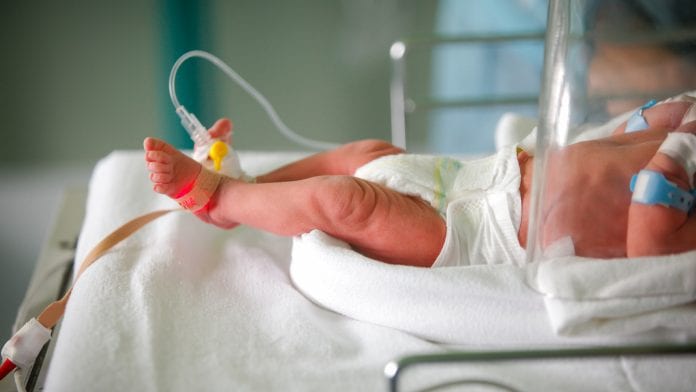
A Chinese case study has shown that coronavirus, otherwise known as COVID-19, is not transmitted from pregnant mothers to newborn babies.
Chinese professors report in the journal Frontiers in Pediatrics that it does not appear that the coronavirus infection, or COVID-19, can be transmitted from pregnant mothers to newborn babies.
Four newborn babies in a Wuhan hospital – the epicentre of the coronavirus outbreak – did not contract COVID-19 from their mothers who had the novel virus whilst giving birth. The babies remain healthy with no signs of infection.
The study is the second to come out of China within the last month to confirm that mothers infected with coronavirus disease 2019 (COVID-19) during pregnancy did not infect their babies.
Globally, an estimated 3.4% of reported COVID-19 cases have died, according to the latest data from the World Health Organization. In comparison, seasonal flu generally kills far fewer than 1% of those infected. However, COVID-19 does not appear to spread as easily as influenza. Transmission and fatality rates are currently subject to change and revision as more research is done on the virus.
Can coronavirus be passed to babies?
In the study that looked at whether or not COVID-19 can be transmitted from pregnant mothers to newborn babies, the four mothers involved all gave birth whilst infected at Wuhan’s Union Hospital.
Wuhan in Hubei Province is believed to be the epicentre of the current outbreak that has sickened more than 100,000 people worldwide and killed more than 3,400 – most of them in China.
None of the infants developed any serious symptoms such as a fever or a cough, which are associated with COVID-19. All of the babies were initially isolated in neonatal intensive care units and fed formula and three of the four tested negative for the respiratory infection following a throat swab. However, the fourth child’s mother declined permission for the test.
Other illness symptoms
One newborn did experience a minor breathing issue for three days that was treated by non-invasive mechanical ventilation. Also, two babies, including the one with a respiratory problem, did have body rashes that eventually disappeared on their own.
The researchers note that it is impossible to conclude whether there’s a connection between these other medical issues and COVID-19.
Study co-author, Dr Yalan Liu, at Huazhong University of Science and Technology, and who also works in the Department of Paediatrics at Union Hospital, said: “We are not sure the rash was due to the mother’s COVID-19 infection.”
In the previous retrospective study on nine pregnant mothers infected with COVID-19, researchers also found no evidence that the viral infection can pass to the child. All nine births were done by caesarean section. Three of the four pregnancies in the current study were also brought to term by C-section.
Liu said: “To avoid infections caused by perinatal and postnatal transmission, our obstetricians think that C-section may be safer. Only one pregnant mother adopted vaginal delivery because of the onset of the labour process. The baby was normal. Maybe vaginal delivery is OK. It needs further study.”
Do you want the latest news and updates from Health Europa? Click here for your free subscription, and stay connected with us here.







